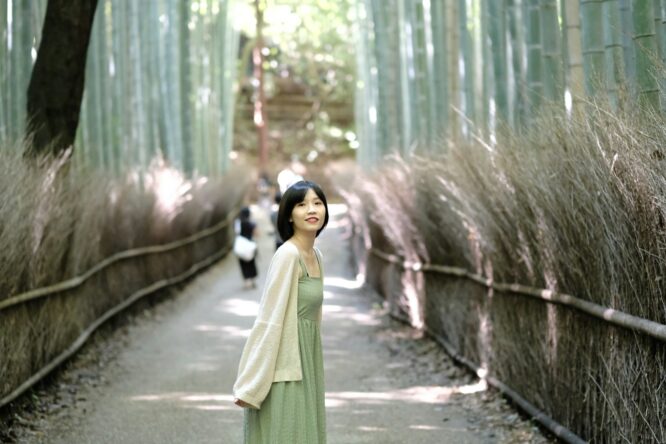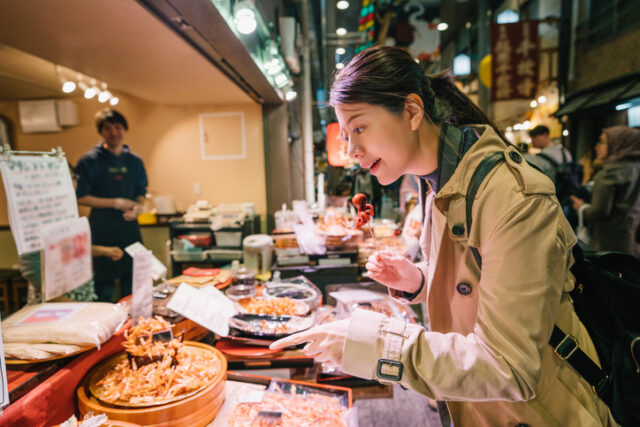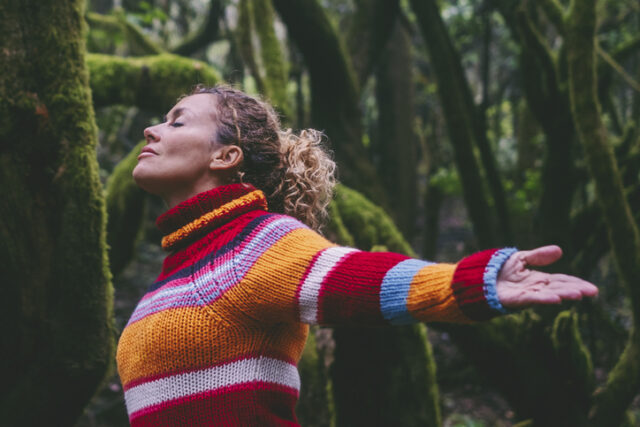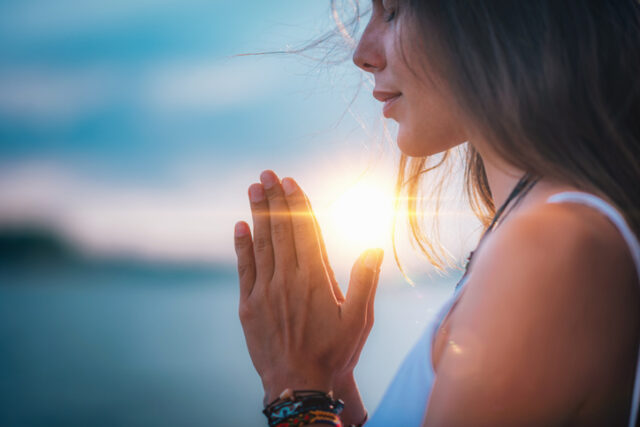The West is great at productivity and pushing forward.

However, but when it comes to calm, connection, and living like a full human? Other cultures have already nailed it, while we’re seriously lagging behind. That’s not to romanticise other ways of living, especially because life isn’t one-size-fits-all and everywhere has its problems. However, there are some things that would be great to have in our life that are sadly absent from our day-to-day lives in this part of the world. Here’s what the East has figured out that we’re still catching up to.
1. A meal isn’t just food—it’s a pause.

In Japan, you don’t eat while walking—it’s seen as chaotic. In Italy, lunch is meant to be slow and social, not something you shovel in between Slack pings. In so many places, eating is about presence, not just fuel. The West turns food into background noise. It’s a sandwich at your desk or cereal at 9pm because you forgot to eat. Other cultures remind us that how you eat matters just as much as what’s on the plate.
2. Rest isn’t earned—it’s baked into the rhythm of life.

In Sweden, “fika” is a legit work break to pause, have coffee, and connect. In South Korea, public naps are just part of surviving the day. And in plenty of cultures, a mid-afternoon reset isn’t seen as lazy—it’s just smart. Meanwhile, the West acts like you have to earn rest by completely burning out first. But the places that prioritise daily recovery? Their people aren’t falling apart every Friday afternoon.
3. Community isn’t a buzzword—it’s just how life works.

In lots of cultures, community is woven into everything. Neighbours check in, people show up unannounced with food, and childcare isn’t a solo sport. It’s not performative—it’s just how people move. The West puts independence on a pedestal, which often means everyone’s overwhelmed in silence. Other cultures get that life isn’t meant to be done entirely on your own. It’s not weakness; it’s just human.
4. Moving slower doesn’t mean doing less.

In Bali, people move through their day without the constant rush. In parts of Portugal and Greece, life flows at its own pace. There’s less urgency and more presence. You do things well—just not at panic speed. The West sees slow as lazy, but living fast doesn’t mean you’re living well. Other places have figured out that when you stop racing the clock, you actually start enjoying your day.
5. Ageing is respected, not erased.

In many Asian and Indigenous cultures, elders are seen as wise—not expired. Age is honoured, not hidden. Wrinkles aren’t a flaw, and grey hair isn’t something to panic over—it’s a sign you’ve lived. The West is still trying to Botox time away. But other cultures show that growing older isn’t something to be ashamed of. It’s something to lean into, and maybe even be proud of.
6. Cities are built around people, not just cars.

In places like Copenhagen or Tokyo, walking and biking are part of daily life. Streets are designed for humans—not just traffic. Public transport is clean, reliable, and doesn’t feel like a punishment. In much of the West, if you don’t drive, you’re stuck. But other cities prove that urban life can be calm, accessible, and actually enjoyable when people—not vehicles—are the priority.
7. Dressing well is about effort, not expense.

In cities like Paris or Seoul, people dress intentionally—neat, put together, but not flashy. It’s not about labels or trends. It’s just showing respect for yourself and the space you’re in. The West can lean hard into extremes: either hyper-consumer fashion or total comfort-first chaos. Other cultures show that looking good doesn’t have to mean overthinking it—it’s just a form of self-expression and care.
8. Taking pride in routine doesn’t make life boring.

In Japan, even the smallest jobs are done with care and attention. There’s pride in getting things right, even if they’re simple. It’s not about perfection; it’s about presence and consistency. The West often glamorises chaos and last-minute scrambles. But daily calm comes from rhythm, not spontaneity. Other cultures have turned routine into an art, not a trap.
9. It’s important to know when enough is actually enough.

In a lot of cultures, more isn’t always the goal. More work, more stuff, more side hustles—none of that is automatically considered better. People prioritise balance, not just accumulation. The West loves a growth mindset to the point of burnout. But chasing more for the sake of it isn’t peace—it’s pressure. Other places have mastered the calm that comes with knowing when to stop.
10. Nature is treated as part of daily life, not an escape plan.

In countries like Norway and New Zealand, people are outside all the time—hiking, biking, just walking around. Nature isn’t a weekend activity. It’s part of the routine, even in bad weather. The West tends to treat the outdoors like a holiday treat. But other cultures show that making time for fresh air daily, even just a walk through a local park, can change how your entire week feels.
11. Kids don’t have to be raised in isolation.

In lots of cultures, parenting is a group effort. Aunties, grandparents, neighbours—all hands on deck. There’s a shared understanding that kids are part of the wider village, not just one household’s job. In the West, parents are expected to do it all, perfectly, and usually without much support. Other cultures show that shared parenting isn’t weakness—it’s wisdom. No one’s meant to raise kids completely solo.
12. Spirituality can be casual, not performative.

In countries like India, Thailand, or Mexico, spiritual rituals are quietly woven into daily life. A quick incense offering. A morning chant. A pause for prayer. It’s not loud—it’s just lived. The West often swings between ignoring spirituality or turning it into a full aesthetic. But daily spiritual connection, without needing to make it a performance, is something other cultures have down to an art.
13. Beauty standards aren’t so one-note.

In many cultures, beauty isn’t a single look—it’s diverse, nuanced, and tied to history and story. What’s seen as beautiful shifts with age, expression, and identity. It’s not locked into one impossible mould. In the West, the beauty bar still leans narrow, airbrushed, and unrealistic. Other places remind us that there are so many ways to be beautiful when you stop trying to meet one global standard.
14. Time isn’t the enemy—it’s the setting.

In the West, we race the clock constantly. You’re either running behind, multitasking, or trying to squeeze in “one more thing.” But in places like the Caribbean, parts of Africa, and Southern Europe, time moves with you, not against you. Deadlines exist, sure, but so does flow. Life happens in moments, not just calendars. That change in how you relate to time changes everything about how your days feel.




